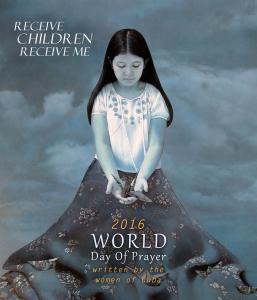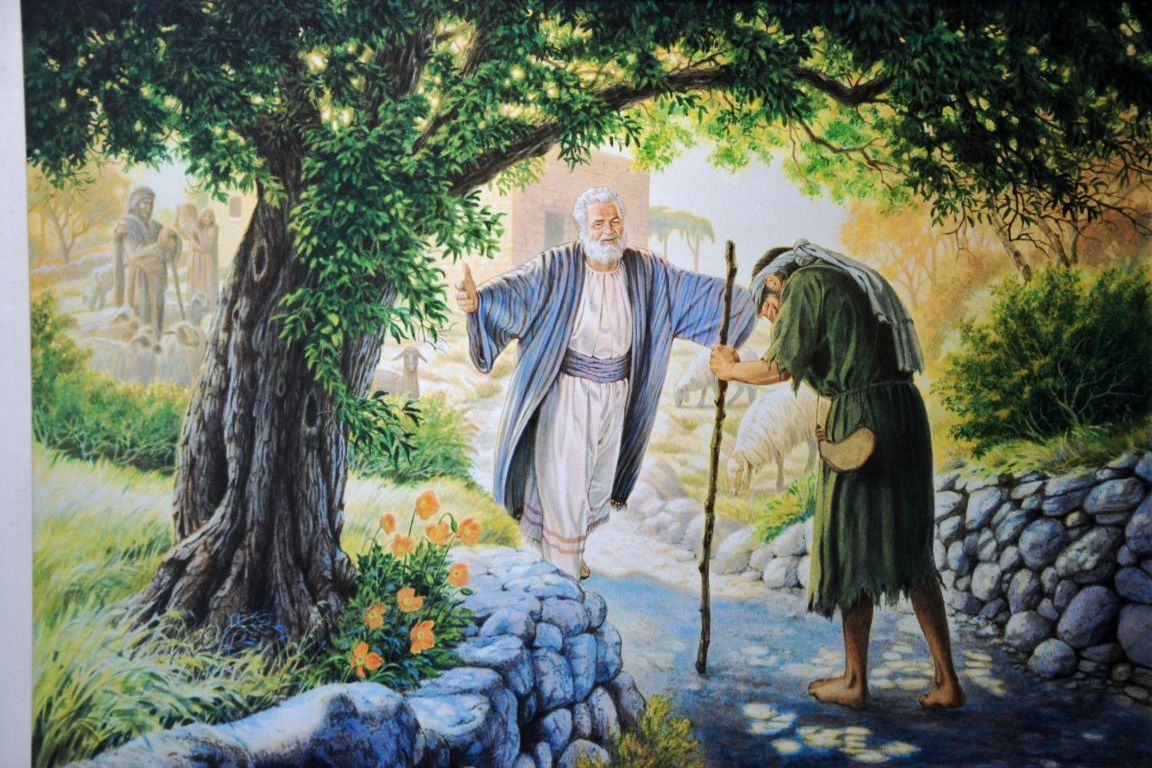 The World Day of Prayer is a global ecumenical movement which brings Christians of many traditions together to observe a common day of prayer each year. Through preparation and participation in the worship service, we can come to know how our sisters of other countries, languages and cultures understand the Biblical passages in their context. We can hear their concerns and needs and can feel ourselves in solidarity with them as we pray with and for them. In this way, it is possible to enrich our Christian faith as it grows deeper and broader in an international, ecumenical expression.
The World Day of Prayer is a global ecumenical movement which brings Christians of many traditions together to observe a common day of prayer each year. Through preparation and participation in the worship service, we can come to know how our sisters of other countries, languages and cultures understand the Biblical passages in their context. We can hear their concerns and needs and can feel ourselves in solidarity with them as we pray with and for them. In this way, it is possible to enrich our Christian faith as it grows deeper and broader in an international, ecumenical expression.
The motto of the World Day of Prayer movement is Informed Prayer and Prayerful Action. Through our participation in the World Day of Prayer, we affirm that prayer and action are inseparable and that both have immeasurable influence on the world.
World Day of Prayer in Canada
The World Day of Prayer began in the 19th century when Christian women of Canada and the United States started to be involved in missions at home and in other parts of the world. Since 1812, women have encouraged one another to engage in personal prayer and take leadership in communal prayer within their mission auxiliaries and associations.
Source: Text: Women’s Inter-Church Council of Canada Image: Logo, World Day of Prayer
World Day of Prayer takes place internationally on the first Friday of March every year. In 2016 that will be March 4th. If you can’t celebrate World Day of Prayer on the first Friday in March, choose another date that works for your community and you can celebrate in symbolic solidarity with women around the world!
The host country for WDP 2016 is Cuba. The women of Cuba call us to explore the depths of God’s love and accept the invitation to receive the realm of God as a little child (Mk. 10:13–16).

 Every year since 2009, 4th March has been designated as World Day of the Fight Against Sexual Exploitation. Although there are exceptions, sexual exploitation overwhelmingly involves women and children, and it is a problem of worldwide proportions.
Every year since 2009, 4th March has been designated as World Day of the Fight Against Sexual Exploitation. Although there are exceptions, sexual exploitation overwhelmingly involves women and children, and it is a problem of worldwide proportions.  The International Labour Organisation (ILO) estimates that nearly a million people are trafficked every year for purposes of sex ual exploitation. Although 98% are women and girls, this number also includes a significant number of boys and young men. The major international crimes are trafficking in drugs and weapons, but sexual trafficking follows closely behind and is now a highly lucrative international criminal industry.
The International Labour Organisation (ILO) estimates that nearly a million people are trafficked every year for purposes of sex ual exploitation. Although 98% are women and girls, this number also includes a significant number of boys and young men. The major international crimes are trafficking in drugs and weapons, but sexual trafficking follows closely behind and is now a highly lucrative international criminal industry. 
 Rare Disease Day takes place on the last day of February each year. The main objective of Rare Disease Day is to raise awareness amongst the general public and decision-makers about rare diseases and their impact on patients’ lives.
Rare Disease Day takes place on the last day of February each year. The main objective of Rare Disease Day is to raise awareness amongst the general public and decision-makers about rare diseases and their impact on patients’ lives.

 No longer so with all our silent gadgets still doing the same
No longer so with all our silent gadgets still doing the same  old task of… measuring time. And with the modern tempo of our busy lives, you will still hear the well-worn expressions: “Time flies”… “I didn’t have the time…” “You should be on time…” “If we have time…”
old task of… measuring time. And with the modern tempo of our busy lives, you will still hear the well-worn expressions: “Time flies”… “I didn’t have the time…” “You should be on time…” “If we have time…”
 Recently, a TV programme was speaking of a survey among a large sample of women. The findings were quite amazing. The report showed that in the group of women who had been part of the survey, every one of them, yes, every single one of them, would have liked to change something in their appearance. Given the opportunity – and the money – each woman would have wished her appearance to be different. They were not afflicted with serious birth defects, or ugly scars, or any disfiguring attribute, yet they would have liked to see themselves, and to be seen, in a different way.
Recently, a TV programme was speaking of a survey among a large sample of women. The findings were quite amazing. The report showed that in the group of women who had been part of the survey, every one of them, yes, every single one of them, would have liked to change something in their appearance. Given the opportunity – and the money – each woman would have wished her appearance to be different. They were not afflicted with serious birth defects, or ugly scars, or any disfiguring attribute, yet they would have liked to see themselves, and to be seen, in a different way. Is it any wonder that it has been published that “The revenue of the U.S. cosmetic industry is estimated to amount to about 62.46 billion U.S. dollars in 2016” (Statista, The Statistics Portal)? I had to read this more than once to let the meaning of the words sink in my mind!
Is it any wonder that it has been published that “The revenue of the U.S. cosmetic industry is estimated to amount to about 62.46 billion U.S. dollars in 2016” (Statista, The Statistics Portal)? I had to read this more than once to let the meaning of the words sink in my mind!
 Sarcastic? Pessimistic? Not really, rather… realistic. Is it not true that every day brings its share of… yes, temptation?
But what is a temptation if not a test? A test of what I am, what I can do, what I can become.
Sarcastic? Pessimistic? Not really, rather… realistic. Is it not true that every day brings its share of… yes, temptation?
But what is a temptation if not a test? A test of what I am, what I can do, what I can become.